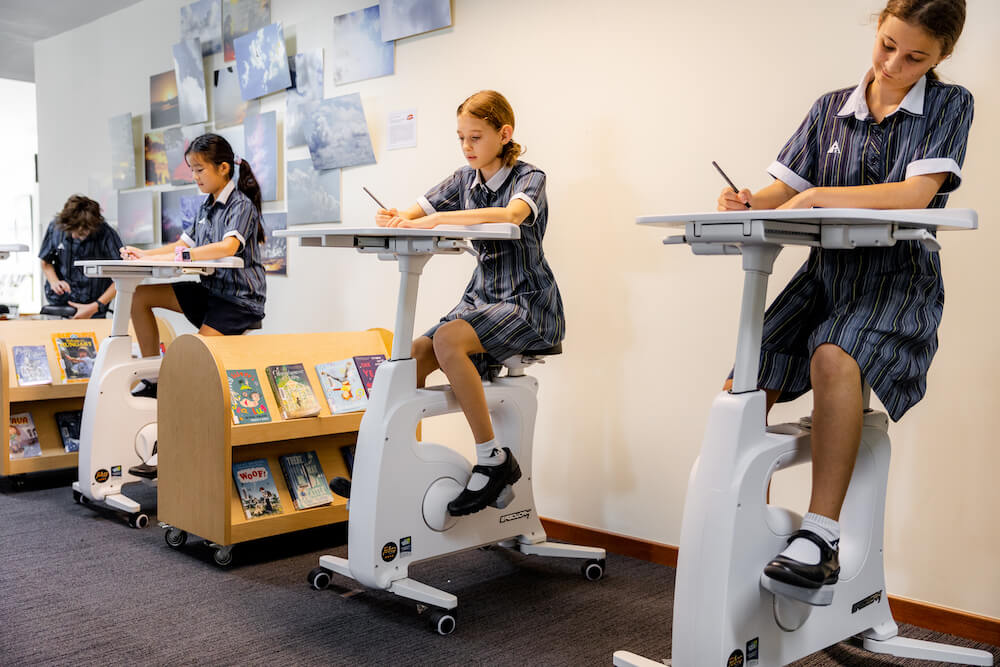Choosing the right fit for your child: Local versus international school
Are you considering switching to an international school? Curious about the disparities between the two choices? Choosing the right school for your child is an important decision that requires careful consideration. International schools can provide your child with a unique and enriching educational experience that can prepare them for the global stage. By understanding the differences between the local and international education systems, you can make an informed decision that aligns with your child’s needs and aspirations. Here are the reasons why you should consider an international school.

Different Kids, Different Systems
Every child is unique, and as parents, it is our responsibility to ensure that they receive an education that caters to their individual needs. The traditional Singaporean education system is rigorous and focuses heavily on academics, with little room for creativity or individuality. On the other hand, international schools offer a more holistic approach to education, with a focus on developing well-rounded individuals who are prepared for the global stage.
Choose the System that’s Best for Your Child
One of the main benefits of an international school is that they offer a variety of educational systems, such as the Australian Curriculum, American curriculum, British curriculum, and more. Each system has its strengths and it is important to choose the one that best suits your child’s needs. If you are considering which curriculum, read our guide which highlights the main differences between, Australian, American and British curricula.
Can Singaporeans get into an International School?
Many parents assume that international schools are only for expatriate families, but this is not the case. Singaporean students are welcome to apply to international schools, and many local families have made the switch to international education for the benefits it offers.
Are Singaporeans allowed to enrol in an International school?
Singaporean children are allowed to attend an international school until they reach the age of 7 without the need for a MOE exemption. However, if they wish to continue their studies at an international school beyond the age of 7, they must obtain a MOE exemption. The process of obtaining an exemption involves submitting an application to MOE, which will then be assessed based on several criteria such as the learning needs being catered for, and historical education if students have spent time overseas in a certain curriculum. The exemption is not guaranteed and is usually only granted for valid reasons such as the child’s need for a specialised education that cannot be provided in local schools, or the family’s plan to relocate overseas in the near future.
Unique kids, unique choices
Choosing the right school for your child is a personal decision, and there is no one-size-fits-all solution. International schools offer a diverse range of students from all over the world, which can provide your child with a unique and enriching educational experience.
Need-to-Know Differences Between the Two Systems
While the local and international education systems share some similarities, there are also significant differences that parents need to be aware of.
Class Size
One of the biggest differences between the two systems is class size. In Singapore, public schools can have up to 40 students per class, while international schools typically have smaller class sizes, which allows for more individual attention and a more personalised learning experience. For example, the Australian International School caps each class at 25 students.
Teaching Methods
The local education system does really more heavily on rote learning and memorisation, while international schools focus on critical thinking, creativity, and independent learning. International schools also place a greater emphasis on developing social skills and leadership qualities.
Co-curricular Activities
International schools offer a wider range of co-curricular activities, such as sports, music, drama, and community service. This allows students to explore their passions and develop skills outside of the classroom. Local school students are often encouraged to attend extra tutoring sessions after school and on the weekends. AIS provides over 300 over the year and across all year groups.
Contact Us
Choosing the right school for your child is a major decision, and there are many factors to consider. International schools offer a unique and enriching educational experience that can prepare your child for the global stage. By understanding the differences between the local and international education systems, you can make an informed decision that best suits your child’s needs.
If you’re considering an international school for your child, don’t hesitate to reach out to us here. Our experienced team can help guide you through the process and answer any questions you may have. Give your child the gift of a world-class education and set them on the path to success.







